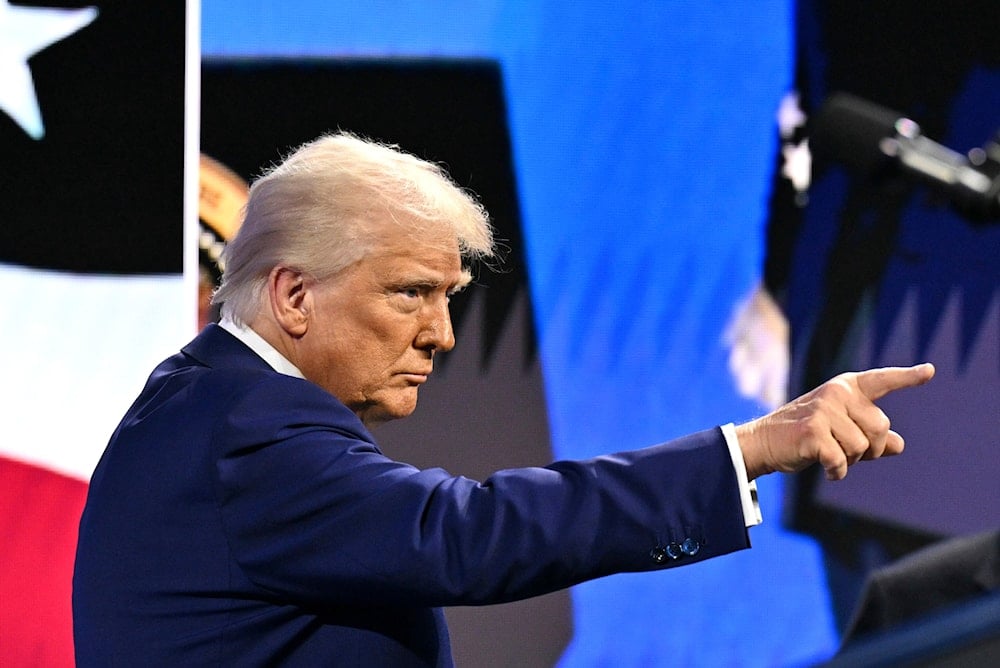Trump eyes US Institute of Peace, other federal boards for downsizing
Some of the institutes Trump is looking to shut down or downsize are being targeted on grounds that they are highly partisan, benefiting the Democratic party.
-

President Donald Trump speaks at the Future Investment Initiative (FII) Institute summit in Miami Beach, Florida, on Wednesday, February 19, 2025. (AP)
US President Trump is planning to sign an executive order on Wednesday to dissolve or significantly downsize several federal advisory committees including The Institute for Peace, the US African Development Foundation, the Presidential Management Fellows Program, the Advisory Committee on Voluntary Foreign Aid, and others.
This order comes after Trump asserted on Tuesday night that he has direct authority over boards and commissions that are historically independent and designed by Congress to operate without daily oversight by the White House.
Trump has also required his Cabinet to submit a list of additional committees and boards to be terminated within 30 days, in a bid to diminish the number of agencies to the minimum required by law.
The Institute of Peace is being targeted partially because officials believe it's a very partisan agency due to its employees contributing to the Democratic Party.
Trump sows discord while downsizing government
Similarly, the US Department of Education is in a chaotic state as Trump is moving toward shutting it down, fulfilling a vow he reiterated since his presidential campaign sparking fears that employees will lose their jobs.
Sources told The Guardian that the department held an "incomplete and chaotic" staff meeting where managers tried to explain news policies to employees, including summoning all staff back to the office and remote workers requiring re-certification and secretary of education approval.
Trump launched a buyout targetting federal employees, promising them 8 months of salaries in return for their voluntary resignations, in an effort to cull federal workers; 75,000 employees, or 3% of the total federal workforce have applied to the buyout.
The buyout faced resistance from Federal Workers' Unions who said that the offer was not trustworthy, considering it "arbitrary", violates laws that prevent agencies from spending more than what's approved to them by Congress, and could derail important government functions.
The Unions sued intending to pause the program, and US District Judge George O'Toole delayed it for six days before ruling that the unions do not have a legal standing to sue and the program and approving the plan.

 2 Min Read
2 Min Read










